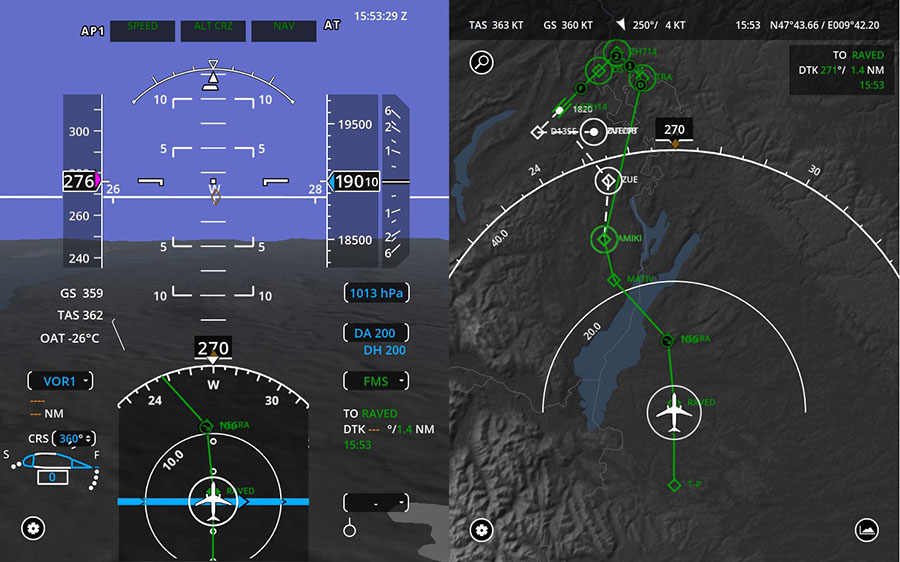DYNCAT is a two-year exploratory research project that aims at demonstrating how to take into account environmental factors like CO2 and noise when optimising 4D trajectories, enabling safer, more cost-efficient and more environmentally sustainable operations in the terminal manoeuvring area (TMA).
Today’s aviation has a significant impact on the environment regarding both noise and fuel consumption. To improve the situation, the exploratory research project DYNCAT developed measures for increased energy efficiency during approach to an airport.
While there are several possible ways to improve the situation, many of those are long-term developments. However, DYNCAT focused on short- and mid-term recommendations.
To do so, operational data from many different relevant sources in the Terminal Manoeuvring Area were analysed, such as flight data recordings, noise measurements, and meteorological data. Furthermore, workshops to discuss the situation with pilots and air traffic controllers were held. As an area of possible improvement, energy management during approach was identified.
Approaches are often not as energy efficient as they could be, often due to a lack of information available to the pilots. To address this issue, the project partners then developed an extension to an aircraft’s flight management system which calculates an ideal approach profile and provides cues to the pilots, thus helping them fly more energy efficient approaches.
To validate the functionality, piloted simulator trials were conducted with airline pilots and subsequently analysed regarding noise emission and fuel consumption. Compared to the reference flights, the approaches flown using the DYNCAT functionality consumed, on average, 5 kg less fuel while being up to 1.5 dB quieter. Furthermore, DYNCAT flights were more uniform and thus more predictable for air traffic controllers, supporting efficient air traffic management.
Making use of the project results requires an adaptation of aircraft equipment, procedures, and regulations. Thus, recommendations to all relevant stakeholders were developed, which should enable the use of the DYNCAT functionalities.
To summarise, key results of the project are:
- Proof of concept for an FMS function extension for increased energy efficiency during approach
- Quantification of the function’s operational and environmental benefits
- Derived recommendations to stakeholders, including manufacturers, operators, air navigation service providers, …
The project results will be further evaluated and refined in future endeavours.

This project has received funding from the SESAR Joint Undertaking under the European Union's Horizon 2020 research and innovation programme under grant agreement No 893568.
